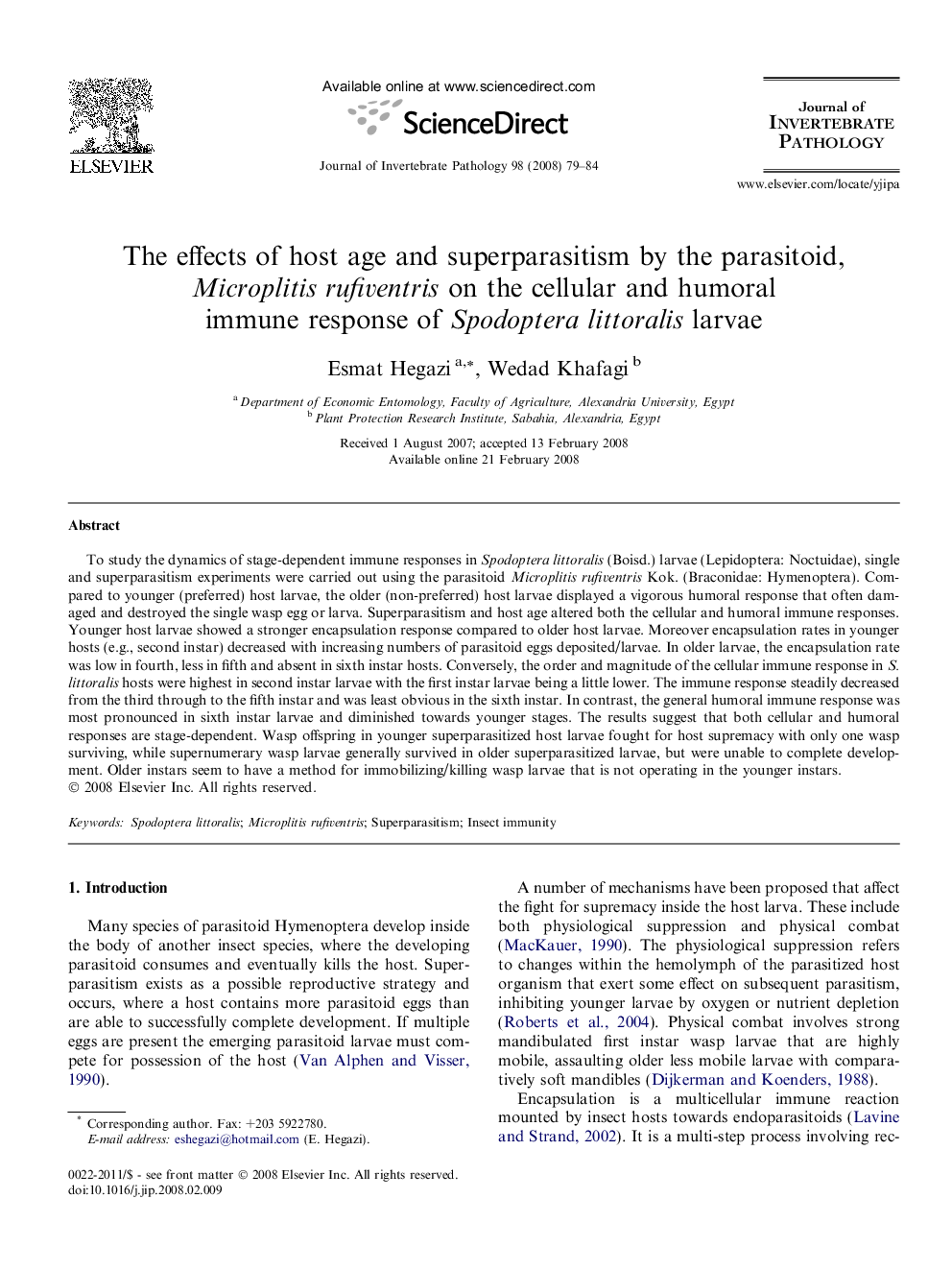| Article ID | Journal | Published Year | Pages | File Type |
|---|---|---|---|---|
| 4558497 | Journal of Invertebrate Pathology | 2008 | 6 Pages |
To study the dynamics of stage-dependent immune responses in Spodoptera littoralis (Boisd.) larvae (Lepidoptera: Noctuidae), single and superparasitism experiments were carried out using the parasitoid Microplitis rufiventris Kok. (Braconidae: Hymenoptera). Compared to younger (preferred) host larvae, the older (non-preferred) host larvae displayed a vigorous humoral response that often damaged and destroyed the single wasp egg or larva. Superparasitism and host age altered both the cellular and humoral immune responses. Younger host larvae showed a stronger encapsulation response compared to older host larvae. Moreover encapsulation rates in younger hosts (e.g., second instar) decreased with increasing numbers of parasitoid eggs deposited/larvae. In older larvae, the encapsulation rate was low in fourth, less in fifth and absent in sixth instar hosts. Conversely, the order and magnitude of the cellular immune response in S. littoralis hosts were highest in second instar larvae with the first instar larvae being a little lower. The immune response steadily decreased from the third through to the fifth instar and was least obvious in the sixth instar. In contrast, the general humoral immune response was most pronounced in sixth instar larvae and diminished towards younger stages. The results suggest that both cellular and humoral responses are stage-dependent. Wasp offspring in younger superparasitized host larvae fought for host supremacy with only one wasp surviving, while supernumerary wasp larvae generally survived in older superparasitized larvae, but were unable to complete development. Older instars seem to have a method for immobilizing/killing wasp larvae that is not operating in the younger instars.
